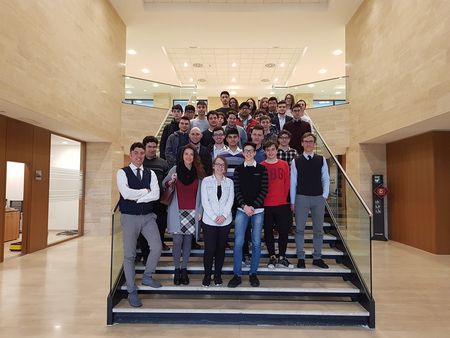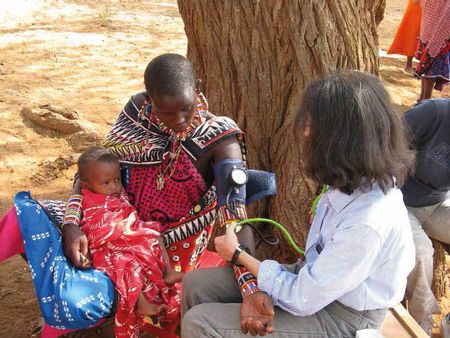AMADA is particularly concerned with issues such as environmental protection and sustainable development. The energy efficiency and sustainability of the plants we design are now fundamental requirements in the Group's virtuous production process.
Similarly, AMADA Italia is continually engaged in raising awareness of social issues, adopting measures to protect local areas and improve the living conditions of communities.
As part of the “AMADA GREEN ACTION PLAN”, our company is committed to reducing its CO2 emissions by 25% by 2020. Compliance with regulations on biodiversity - a key objective of the plan - will guarantee a cleaner environment for generations to come.

Besides numerous charity projects with various associations, the partnership with the Technical High School “G. Marconi” in Piacenza, started in 2012, is particularly important.
This initiative has provided considerable training activities for the high school students from years three, four and five.
The most significant is the “School/Work Placement Project”, with 400 hours of work placement activities at the company for 21 students, which has been selected among 40 pilot projects at national level.

For several years, AMADA has actively promoted projects supporting no-profit organisations, such as the rebuilding of a playground at Rivergaro (Piacenza) after the flooding in 2015, helped to buy an ambulance for the Italian Red Cross, collected funds for the Piacenza-born missionary doctor Francesca Lipeti, who has been in Kenya since 1992, and other charity initiatives.

AMADA Italia's site is completely environmentally friendly.
It has a 130 kW photovoltaic plant. Heating and air conditioning for the entire plant are provided by latest-generation VRV systems, achieving considerable efficiency, energy savings and a maximum reduction in CO2 emissions.
Similarly, the company's fleet of vehicles includes hybrid cars to reduce fuel consumption and CO2 emissions in the atmosphere.
Considerable attention has been paid to the site's grounds, which have around one hundred different types of plants, to enhance the natural capacity to absorb and fix carbon in the atmosphere.

AMADA offers ongoing training for its staff, with an annual average of 250 hours' training per person.
Classroom training comprises managerial courses, Lean Thinking, English language courses and IT skills.
Through consolidated partnerships with some local training institutes, all staff take part in continuing professional development courses on various issues, as required, useful for carrying out activities in the departments they work for.